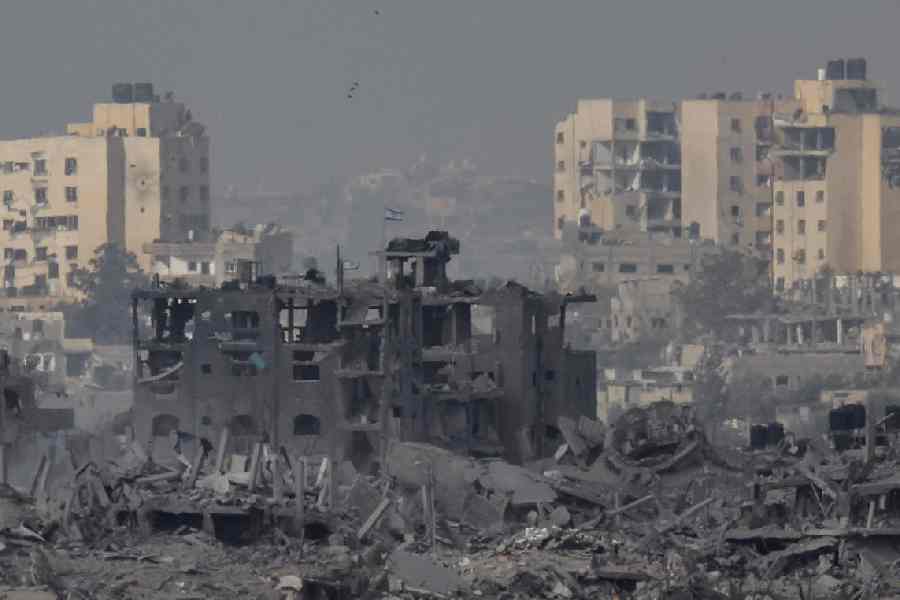Two months into a war with Hamas, the faces of Israelis taken hostage to Gaza still appear on individual posters plastered across Jerusalem bus stops and flashed across buildings.
The sombre mood was all-consuming on Thursday at the start of Hanukkah, the first Jewish festival since October 7 when Israel says Hamas massacred 1,200 people.
It was a solemn moment for all of Israel and not only for the families of the 138 Israelis still held hostage.
For some Israelis, the feeling is of a country shrinking.
Some 200,000 Israelis have been uprooted from both the south of Israel where Hamas infiltrated and the north of Israel where Hezbollah attacked from Lebanon. Absent tourists because of the war, hotels have accommodated many of the evacuees. “October 7 was a day that changed the course of history in Israel,” foreign ministry spokesperson Lior Haiat said, calling it “the worst day for the Jewish people since the Holocaust”.
Aghast at the Hamas killings, Israelis have bought up guns with the government’s blessing.
The nation is largely self-absorbed. Israeli television channels, dominated by war news, rarely broadcast scenes from Gaza except to show soldiers in action.
Israelis must look to channels abroad to view the landscape of buildings destroyed or vacated during an Israeli bombardment and ground offensive in which Gaza health officials say more than 16,000 people have been killed.
Gone are weekly demonstrations that for months drew hundreds of thousands of Israelis into the streets to protest against a government plan to limit the judiciary they assailed as anti-democratic.
The country seems less polarised, at least for now, as it readies to celebrate Hanukkah.
Commemorating an ancient Jewish victory, Hanukkah is a family festival lasting eight nights and featuring candle lighting and frying of foods in oil because, tradition says, of a miracle that oil found to fuel a ceremonial lamp was only enough for one day, but it burned for eight.
Although affected emotionally, many Israelis say the war hasn’t broken them. Psychologist Danny Brom said, though, he had been receiving more patients since October 7.
People struggling not to feel helpless have found purpose in baking cookies and braided challot bread for soldiers, he said, while one woman offered swimming lessons to evacuees at a hotel.
Public opinion is generally with the soldiers and for the continuation of the war.











